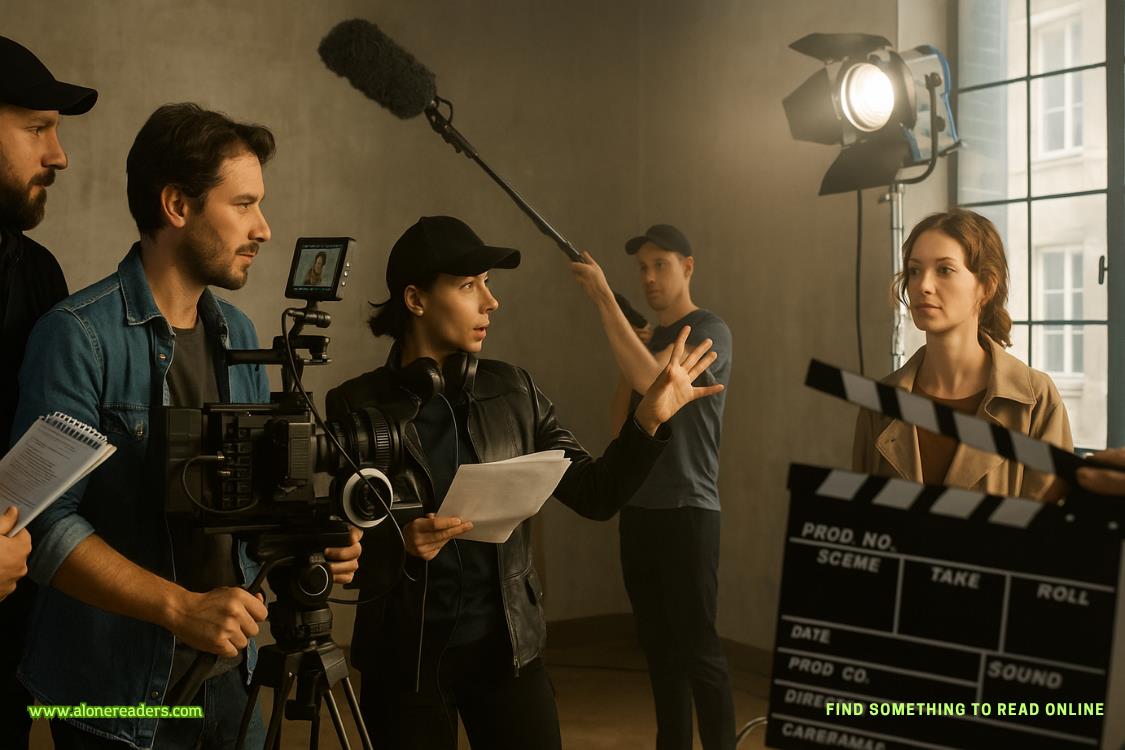Page 1 of The Little Provence Book Shop
PROLOGUE
It was the same every morning, even Sundays in the high season. At seven o’clock the bell tower opposite would ring out, rousing Monique from her bed, and she’d wash, dress and make her way to the apartment’s smallcuisine,fill the copper kettle and switch on the gas.
She always took her coffee the same: two teaspoons of ground beans, brewed in a pot, poured into a porcelain cup with gold-embossed edges, with two cubes of sugar from the tin. As the heat forced flavour from the grounds, she’d breathe deeply, the smell of the coffee awaking her senses before even touching her lips.
Once her espresso was made, she’d sit by the window and watch the courtyard, the movement of the morning as familiar to her as the lines in her palm. There was André opening the door of the patisserie and brushing flour from his apron; Theo with his two baguettes in brown paper, walking quickly back home for breakfast; Madame Lenore wheeling her bicycle across the cobbles rather than risk riding. By a quarter to eight, the older children would pass, their backs weighed down byenormous bags stuffed with books, their gait loping and reluctant as they made their way to the bus stop.
She loved this morning tableau, seeing the people who’d become friends and perhaps even family over the years. Seeing them evolve and change, encounter adversity and learn how to rise above it, or at least bear it. Growing up in Paris, she’d never imagined that small town life could be as rich;Maman,with her scarlet lips and tailored clothing, had scorned what she called the ‘dying countryside’, and preferred to be where there was life.
Only there was a difference between being amongst life and living. In Paris they had been surrounded by people but had remained lonely. Here, she had been able to make a difference; to use her talent to change lives – and what else was it for? She longed to tell her mother she was wrong.
But she had not spoken toMamanfor more than thirty years; perhaps she was already dead? The flash of pain was soon subdued by the memory of what her mother had done to her. Some things could be forgiven; others left deep wounds that never quite closed.
Monique stood and brushed her skirt into place, straightened her blouse, walked to the mirror and adjusted her chignon then tried a smile. Her mother’s face – perhaps also her daughter’s face? – smiled back at her. She was a single entity but carried with her the women who had gone before and those who had come after.
As she placed her cup in the sink and made her way to the wooden staircase that snaked down onto the shop floor, she reminded herself that this was the day when Adeline would come. Monique could feel things beginning to shift, as if what had once seemed a complete puzzle had moved to make room for a final piece; the air was different and her life was in flux.
She glanced, in passing, at the small jar of earth on thewindowsill; soon perhaps she’d untie the knot, remove the cloth from where she’d buried it a few weeks ago. Perhaps.
She breathed in the scent of the books as she made her way down – the smell of ink and fresh paper, dust and older volumes. The mingling of past and present. She felt it healing her, knew the books were there as they always had been, waiting to excite, terrify, enlighten or restore whoever would be next to turn their pages.
As she crossed the shadowed floor of the bookshop, her skirt brushed softly against her calves. She knew the layout of the shelves, the stands, the tables with their high-stacked popular volumes. That knowledge and the tiny amount of light allowed by breaches in the wooden shutters meant there was no need for the electric light. She reached up for the window catch and opened the wooden frame, unfastening the shutters and at last folding them back.
The April sunlight fell into the room, alighting on her face like a theatre spotlight, illuminating her nut-brown skin, her eyes that sparkled like jewels. Her dress turned from grey to a vibrant yellow, her gold hoop earrings shone like stars. Her crystal – a moonstone – glowed against the soft skin at her throat. She fingered it briefly.
Then she continued to work her way around the windows, as if she were Mother Nature herself, calling time on the drawn-out night and allowing the spring day to finally burst into being.
1
From the back of the taxi, Adeline stared out at the darkened streets; the houses shrouded by deep shadows barely pierced by the dull glow of scattered orange street lamps. Lili was curled up, snuggled under her favourite blanket and nestled into her side, her long, dark lashes stark against her pale skin. That side of Adeline’s body was warm, a little sticky with sweat. The other remained cold. Adeline had not expected to be so late; she had only worn a light jumper.
Through the tinted window she tried to make out the shapes of things, the size of buildings; to imagine what her surroundings would look like once the sun rose. But the stark gleam of the taxi’s headlights was edged with a cloak of blackness that restricted her view and simply showed an empty, uneven and expressionless road ahead.
She had wanted to arrive in the daytime. Delays at the airport, and an interminable wait for first their luggage, then the taxi, had shattered this hope and now she simply hoped that she would be able to find the cottage; that the key would be in thelockbox as promised and that the electricity would have been switched on for their arrival.
It would be different if she was alone, she thought, lightly rubbing Lili’s arm as her child slept. Alone, she could let herself in and simply collapse on a settee or mattress or whatever sparse furniture might be in place. But with Lili only five years old, she knew she had to find the right spot, to make sure there were blankets, that her child would be safe and warm. And God forbid she hadn’t packed ‘Bunny.’
The driver was silent; he’d started with platitudes – asking about their holiday, the reason for their travels, complimenting her on her French. Her responses had disappointed him, she knew, but she was too tired to explain her life to a stranger and had kept her replies monosyllabic at best. In the end, the conversation had petered out – perhaps he thought her French wasn’t as fluent as he’d believed at first. She felt a little rude – but actually it was a blessing in disguise for the driver. If she unloaded all her angst, her reason for being here, her worries, onto him, he’d probably wind up thoroughly depressed.
She glimpsed herself occasionally in the blackened glass of the back seat window, a white face hovering against the dark, her shadowed eyes and straight mouth, her forehead creased with worry.
Eventually the taxi bumped to a halt and she stepped out, a half-woken Lili leaning heavily against her. The driver placed their cases by her feet and she thanked him, then turned towards the green front door.
As promised, the little lockbox was there and she punched in the code, relieved when it dropped open to reveal a key. She slipped it into the lock and pushed the door open to their new life.
It had taken her a while to sink into sleep last night, so when she woke, Lili standing mischievously refreshed and bright-eyed next to her, she felt sluggish and weighed down. But she tried to smile at the indignant little girl at her side. ‘Morning, precious,’ she said.
‘It’s dirty.’
‘What’s dirty?’
The light which fell through the unshuttered windows revealed a whitewashed room with elegant – if a little dated – furnishings, including the antique bed she’d fallen into, with its starched sheet and silk counterpane, and an ornate washbasin at the edge of the room with a rusty smudge of age-old water. Spiders had woven webs in the corners and dust particles, displaced by the new inhabitants, danced and sparkled. Even so, the sudden dislike of dirt was pretty rich coming from a girl who did everything she could to avoid having to clean her teeth each night.
‘Everything,’ Lili said, screwing up her face in a way meant to show distaste but that instead made her look even more adorable than usual.
Adeline smiled and propped herself up on her elbows. ‘Well, the house has been empty for a while, that’s all,’ she said. ‘We can soon clean it. There’s some beautiful furniture in here!’
Lili looked doubtful but gave a small, brief nod.















